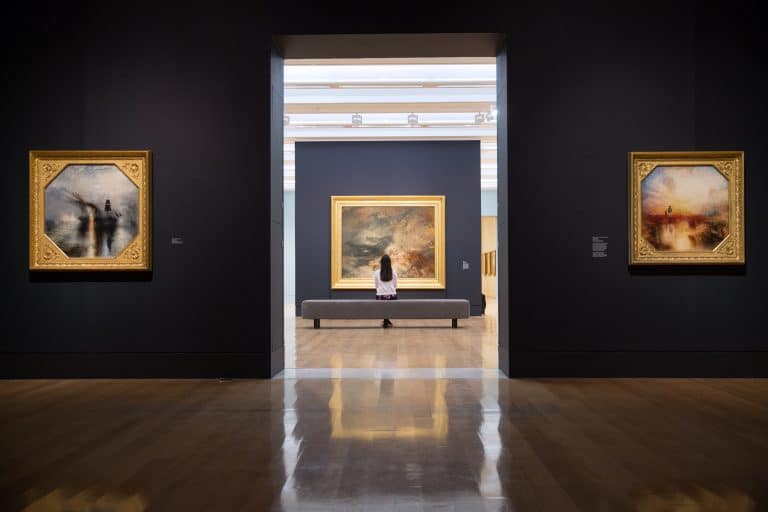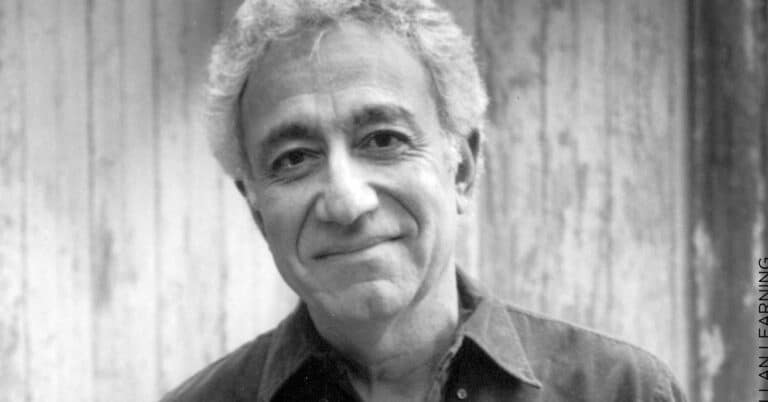
Image by Oli Scarff/Getty Images, © All Rights Reserved.
Why I Study the Humanities
When I was in college, I read Cicero and Petrarch for the first time. I learned that both suffered great tragedy in their lives; Cicero lost his beloved daughter Tullia, and Petrarch was overcome with sorrow when his amore, Laura, fell victim to the plague. For both, violence and upheaval were constant companions. Both were humanists who studied the past in order to heal the wounds of the present. And Petrarch would turn often to the writings of Cicero in times of grief.
My college mentor taught me to appreciate the liberal arts as a tradition that is much older than the Enlightenment. I still return to a passage in Petrarch’s Epistolae familiares. In these personal letters, Petrarch describes how the writings of Cicero and the ancients “are fixed not only in my memory but also in the marrow of my bones, and have so become one with my mind.” For Petrarch, reading the ancients had a soothing, therapeutic effect. He would let their words sink deep within himself and move his soul.
Petrarch’s sense of inwardness and personal selfhood is our inheritance today. But it is Cicero and the ancient Greeks who offer us a way forward.
It’s hard to escape the feeling that something is amiss in the world. Hindus call it the kali yuga; Buddhists, dukkha.
Dukkha is often translated as “suffering,” but perhaps “dislocation” would capture more fully the moment in which we find ourselves.
As in the Renaissance, our era is one of rapid change and unbridled technological advance. As in the Renaissance, science has revealed new horizons and closed others. As in the Renaissance, networks of communication have brought people together and heightened the sense of alienation that we feel when traditional markers of identity are threatened or disrupted. As in the Renaissance, citizens feel rooted and unmoored at the same time — a tension that populists readily exploit.
The Canadian philosopher Charles Taylor has written eloquently about our modern search for meaning. He also warns of three malaises:
An individualism that turns toward subjectivism,
Recognizing no higher meaning
The Self is flattened and pulled
From the Great Chain of Being,
Instrumental reason that eclipses our ends
Projecting outwards from an “iron cage”
The mind tallies costs and benefits
When it means to engage
And a soft despotism that arises
In every human heart
When we fail to live the word citizen
The self becomes the whole, not a part
Modernity is liberating. Pico della Mirandola assured us that we could fly as high as the angels. Descartes claimed that “the will is by its nature so free that it can never be constrained.” Kant urged us to “Dare to know.” Rousseau wrote of le sentiment de l’existence and Herder enjoined us to find our “true” selves.
On our path to authentic living, we discovered fairness. We extended rights. We pushed the boundaries of scientific discovery and reason. There is much we have gained.
But do we not also feel a sense of loss, a sense of despair, a sense of dukkha – the “melancholy of freedom”?
Petrarch is a modern par excellence. We can be moved by him, but we cannot model him. He is one of us. He leads us not beyond ourselves, but deep within ourselves.
Cicero and the ancients offer a different perspective. For Cicero and the Greeks, we are a part of the whole. For Petrarch and we moderns, the self is the whole.
For Cicero and the Greeks, the experience of beauty leads one without. For Petrarch and we moderns, beauty leads one within.
For Cicero and the Greeks, the cosmos is finite, ordered, and everywhere enchanted. For Petrarch and we moderns, space is potentially infinite, mechanical, and shorn of its magic.
To study the humanities is to see how the Greeks and Romans formed part of an educational and cultural tradition that enriches our lives, deepens our commitment to nature and community, and enables us to sit with tragedy, wonder, and paradox.
After I graduated from college, my mentor became my friend, and we have since had many more conversations about Petrarch and the relevance of the ancients. As I read over my correspondence with him, one passage from early modern philosopher Giambattista Vico leaps out. We of the modern age, he writes, “have discovered many things of which the Ancients were entirely ignorant; the Ancients, on the other hand, knew much that is still unknown to us.”
We study the past to rediscover a part of ourselves. We find beauty there. And, who knows, like Petrarch, we may find healing there, too.

